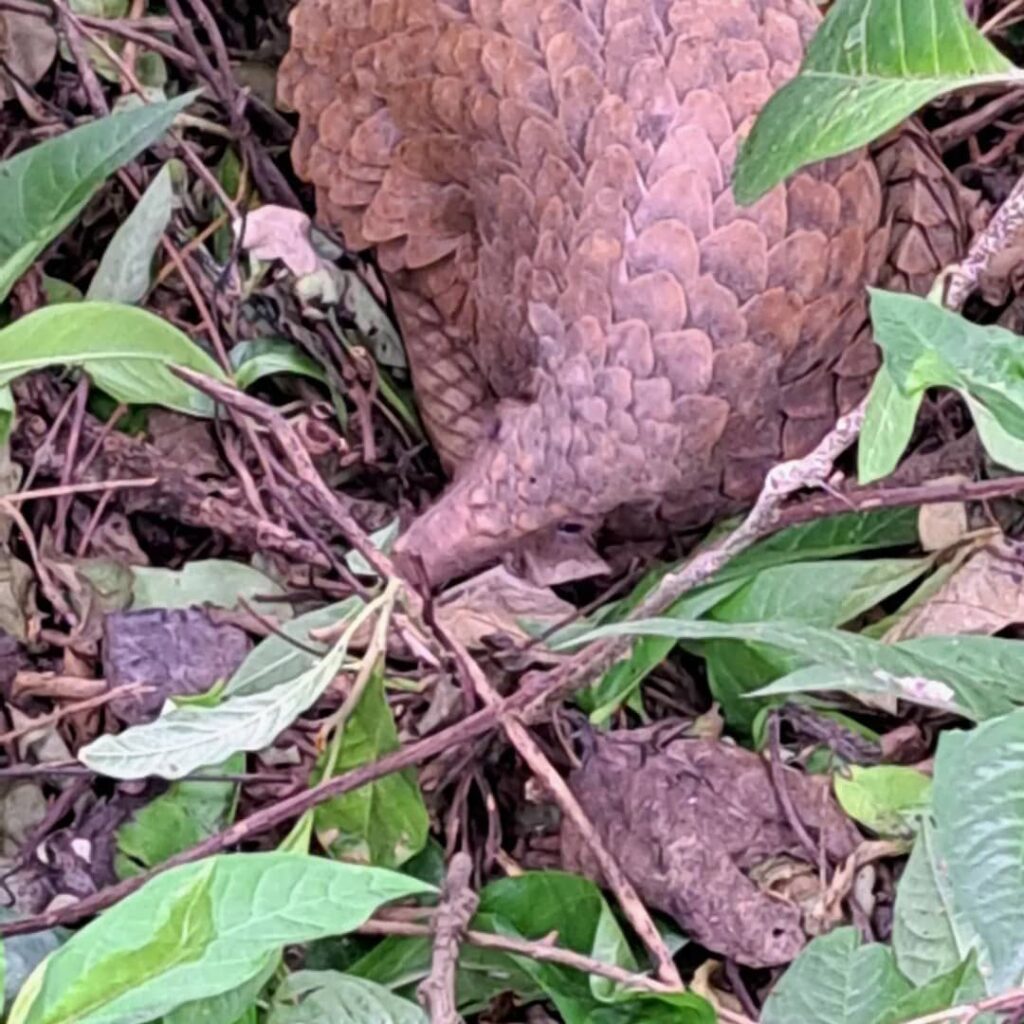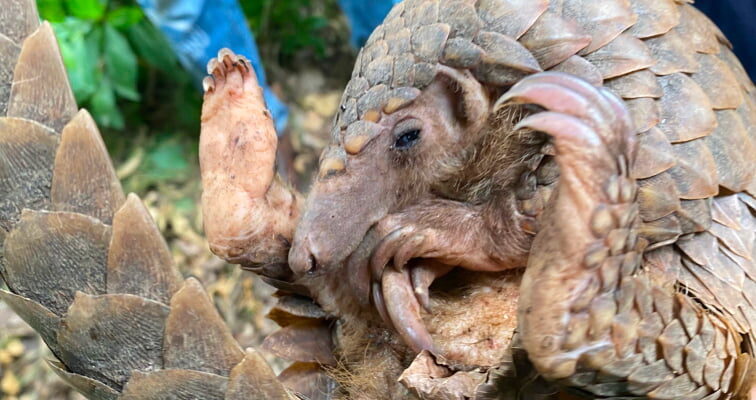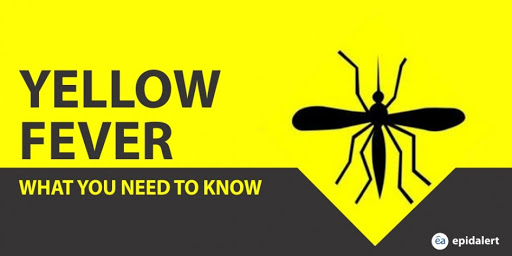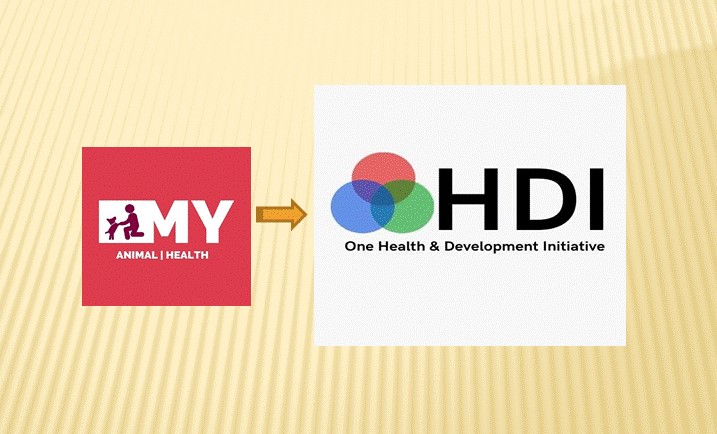Pangolins are the most trafficked mammals globally and are widely hunted and exploited for their scales and meat. The use of their scales and claws in traditional medicine contributes to this wide exploitation. However, in the face of this alarming exploitation, our rescue, rehabilitation, and release initiative shines a ray of hope for the conservation of these animals.
On the 3rd of May 2024, at the very heart of Ibadan, Oyo State, Southern Nigeria, our rescue patrol rescued a male and a female pangolin of the Phataginus tricuspis species, also known as the white-bellied or tree pangolin. These animals were rescued from market sellers, who specialise in the illegal sales of wildlife for income generation.
The rescue exercise did not end without educating these local vendors on the importance of conservation and the numerous benefits of pangolins to our shared ecosystem. This awareness creation, which engaged an audience of twenty persons, is a part of our continued effort to achieve a positive behavioural change towards wildlife conservation.

We then provided these rescued animals with the necessary care and assessed them for any injury they might have sustained while in captivity. Furthermore, the pangolins underwent a short period of rehabilitation to ensure that they were physically fit and prepared for release into the wild — their natural habitat, away from the reach of poachers.
‘Why embark on all these rigorous processes?’ You may ask.
Wildlife conservation and animal welfare remain a top priority. Pangolins, for example, play a pivotal role in our environment. They are regarded as keystone species because they provide several ecological services that directly affect other species. They are, therefore, crucial in maintaining ecosystem balance, promoting soil health through their burrowing activities, and controlling pest populations. Unfortunately, four of the eight species of these scaly creatures are listed as critically endangered, with all eight threatened by extinction. Hence, our unrelenting effort to ensure that they are preserved.

This initiative was a success as a result of the collaboration with Pangolin Conservation Guild Nigeria (PCGN), veterinarians, and volunteers. The intelligence provided by PGCN helped in locating where these animals were held captive. The success we have so far achieved underscores the power of collaboration and concerted efforts in the conservation of endangered species.
The next step in this initiative involves the retrieval of another set of pangolins in the coming week. We are taking action to ensure that pangolins are rescued from distress and provide them with conditions that prioritise the five animal freedoms.
The rescue, rehabilitation, and release exercise was not just an effort to save individual animals, it was a resounding call for more compassionate and kinder treatment of animals and the need to protect all creatures, great or small. After all, all organisms have their importance in maintaining a healthier planet and it is our collective responsibility to ensure that they are kept in balance.
Join us this “Be Kind to Animals Week” to support and advocate for the protection of endangered species, such as pangolins. Together, we can make a difference!
References
- Africat foundation. (2023, November 20). Pangolin Research – the AfriCat Foundation. The AfriCat Foundation. https://africat.org/pangolin-research/
- International Fund for Animal Welfare. (2022, February 16). pangolin FAQ: learn about the world’s most trafficked mammal. IFAW. https://www.ifaw.org/international/journal/faq-pangolins
- One Health and Development Initiative. (2023, May 2). Recognizing animal freedoms. One Health and Development Initiative (OHDI). https://onehealthdev.org/recognizing-animal-freedoms/
- Save Pangolins. (n.d.). Conservation – save pangolins. https://www.savepangolins.org/conservation




